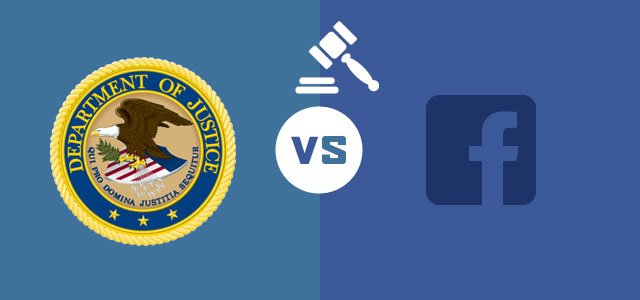Facebook Is Asked to Change Rules for Journalists and Scholars
Facebook is being asked to change rules that restrict how journalists and scholars conduct research on the site — a request that raises unresolved issues about how the First Amendment applies to the social media era.
In a letter sent Monday, lawyers for a group of researchers and journalists asked Mark Zuckerberg, Facebook’s founder and chief executive, to alter the agreement that people must adhere to to use the site. They want Facebook to create a news-gathering exception to its bans on creating inauthentic accounts and on using automated tools that scrape public data about users for large-scale analysis.
The request comes as Facebook has stepped up enforcement of such rules because it is under intense scrutiny over its failure to stop Russia’s use of fake accounts to stoke tensions and manipulate the 2016 election, and over the revelation that the now-defunct political-consulting firm Cambridge Analytica acquired and mined millions of Facebook users’ information to help the Trump campaign.
“We understand that, in the wake of revelations concerning the Cambridge Analytica scandal, Facebook is facing new pressure to protect the data that users entrust to it,” the lawyers wrote. “This pressure is warranted and indeed overdue. Addressing legitimate privacy concerns, however, need not entail the obstruction of public-interest journalism and research.”
Facebook appreciated the recommendations, Campbell Brown, the head of the company’s global news partnerships, said in a statement, but she did not say whether Facebook would adopt them.
“Journalists and researchers play a critical role in helping people better understand companies and their products — as well as holding us accountable when we get things wrong,” she said. “We do have strict limits in place on how third parties can use people’s information, and we recognize that these sometimes get in the way of this work.”
The journalists and researchers are represented by the Knight First Amendment Institute at Columbia University. This year, the institute won a Federal District Court ruling that it was unconstitutional for President Trump to block users from his Twitter account for criticizing or mocking him; the Justice Department has appealed.
If Facebook made the institute’s proposed changes, it would be clear, for example, that journalists can create temporary research accounts expressing different political views in order to see which political ads are targeted at real Facebook users. Such accounts would be labeled to avoid fooling users into thinking real people were behind them.
The letter to Mr. Zuckerberg asks him to voluntarily change Facebook’s terms. But its footnotes contained the outline of a legal argument based on First Amendment concerns.
EDITORS’ PICKS
A violation of Facebook’s terms carries the risk of legal liability under the Computer Fraud and Abuse Act. That act includes a provision that forbids exceeding one’s authorized access on a website, to permit civil lawsuits or criminal charges.
While the Justice Department has taken the position that the act applies to violations of websites’ terms, that broad interpretation has already been challenged several times. The American Civil Liberties Union is pursuing a case arguing that applying the act to researchers and journalists is unconstitutional.
Appeals courts have disagreed about how broadly to interpret the act, and the Supreme Court will eventually need to resolve the terms-of-service question — but that will take a long time, said Orin Kerr, a University of Southern California law professor who specializes in studying computer crimes.
“It’s not crystal clear,” he said. “There are legitimate concerns about legal liability for violating terms of service. Criminal prosecution is very unlikely, but civil suits are possible, and in the absence of a definitive legal ruling, persuading a computer owner to change policies is one way out. It’s a short-term solution that works at one site.”
Still, with more than two billion users, Facebook is no ordinary site. The Knight Institute asked Mr. Zuckerberg to respond to its letter by Sept. 7, citing the “urgency” of permitting research on the site heading into the midterm elections.
The institute included a proposed amendment to Facebook’s terms that would permit journalists and scholars to use the otherwise banned techniques for the purpose of gathering information for the public, so long as they obeyed certain rules — such as not selling the data to commercial aggregators or advertisers.
As examples of the kind of journalism research that could be conducted more freely if the rules were changed, the letter cited a Gizmodo project that explored how Facebook’s algorithm identifies people users may know and unintended problems; a New York Times article exposing a market in fake followers; a ProPublica investigation about how Facebook’s self-service advertising system enabled discriminatory housing practices; and a Columbia University digital journalism project that scrutinized the reach of Russian disinformation.
Facebook has sometimes instructed journalists or researchers to stop similar projects as a violation of its terms, the letter said, and “the mere possibility of legal action has a significant chilling effect,” prompting some to downsize or abandon projects.
Ms. Brown also noted that Facebook offers “tools for journalists that protect people’s privacy,” including a technique for helping measure the performance of content on social media and a new method it is rolling out to analyze political advertising.
But Jameel Jaffer, the executive director of the Knight First Amendment Institute, said that despite such channels, Facebook still “prohibits journalists and researchers from using certain tools that are crucial to their work. Trying to study Facebook without these tools is like trying to study the ocean without leaving the shore.”
The institute sent the letter on behalf of three journalists and two academic researchers. One, Kate Conger, is a technology policy reporter formerly with Gizmodo and TechCrunch who was recently hired by The Times.
Follow FBtutorial on Facebook


